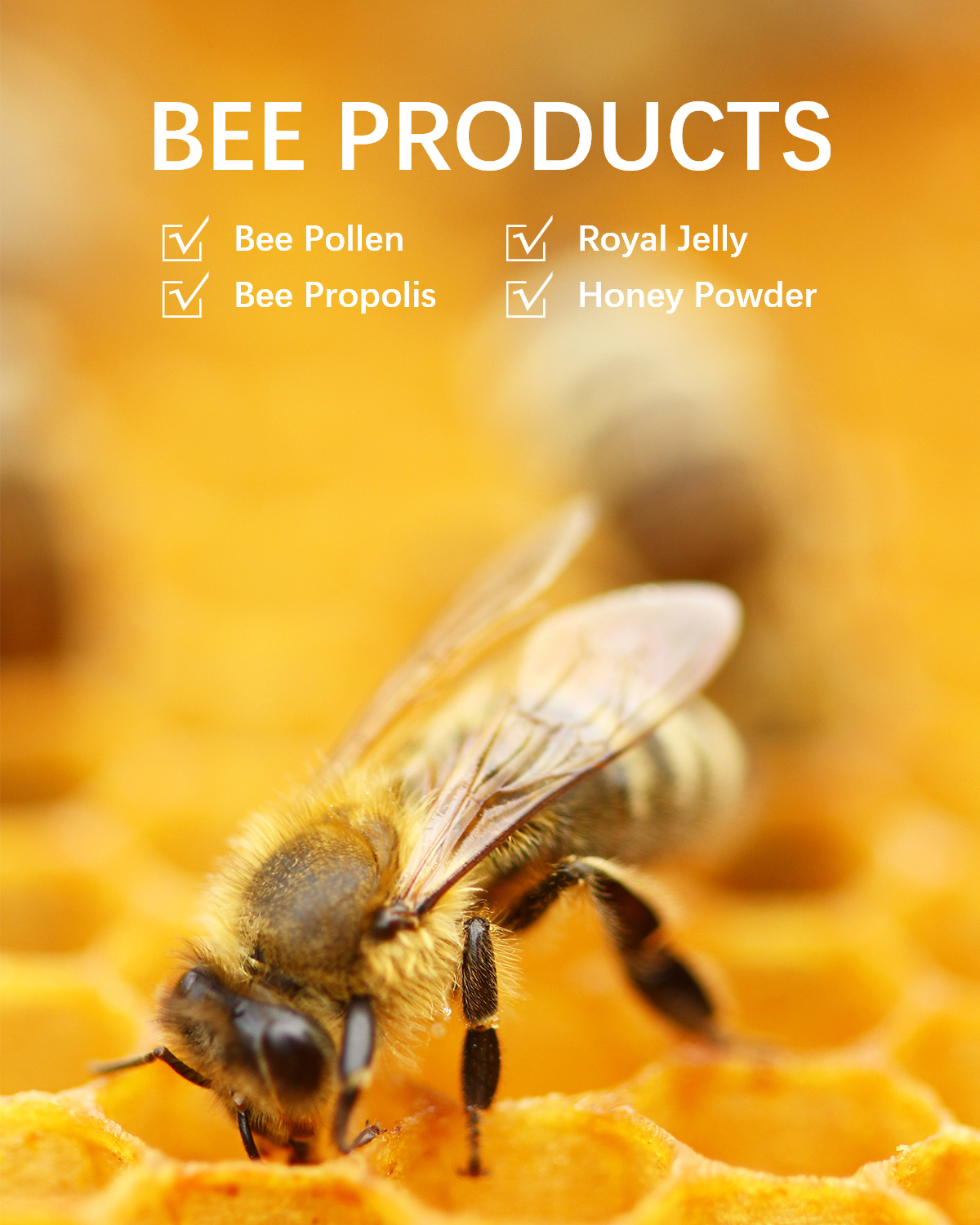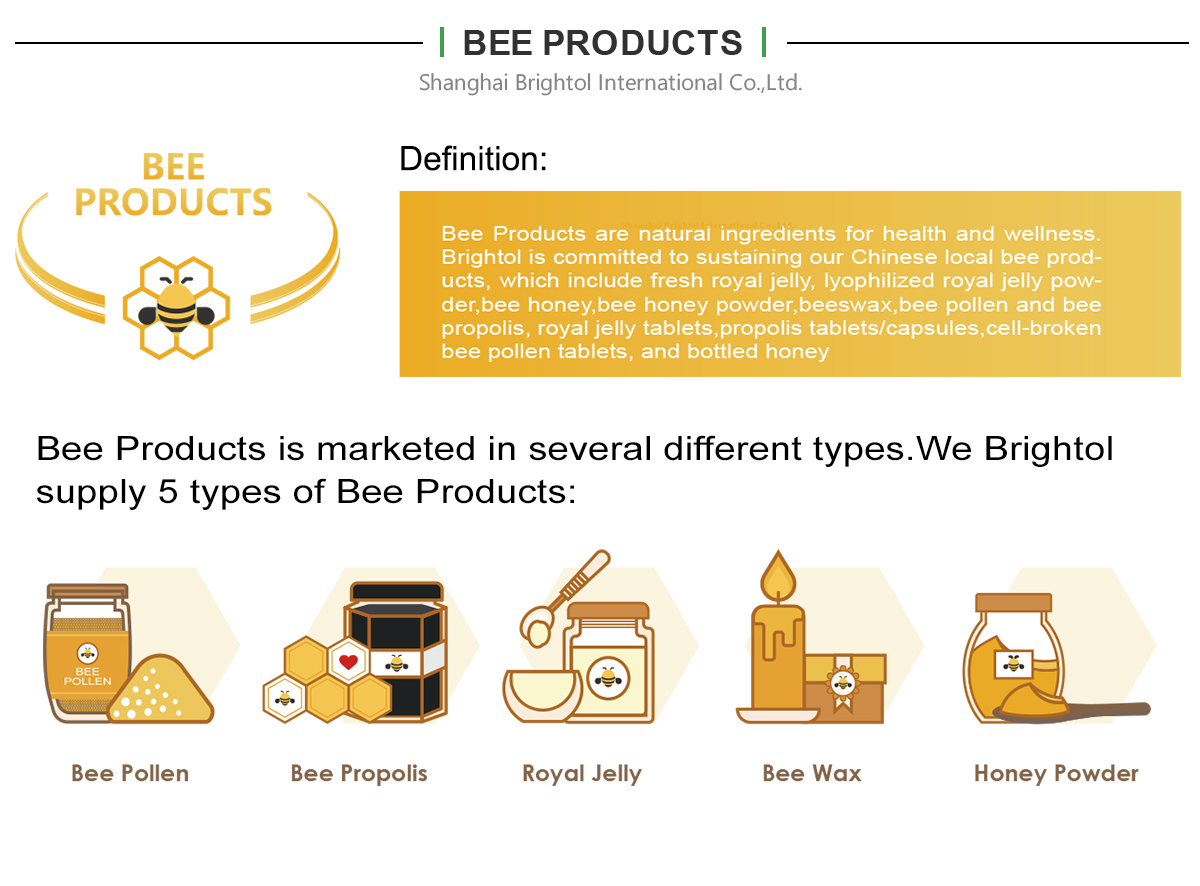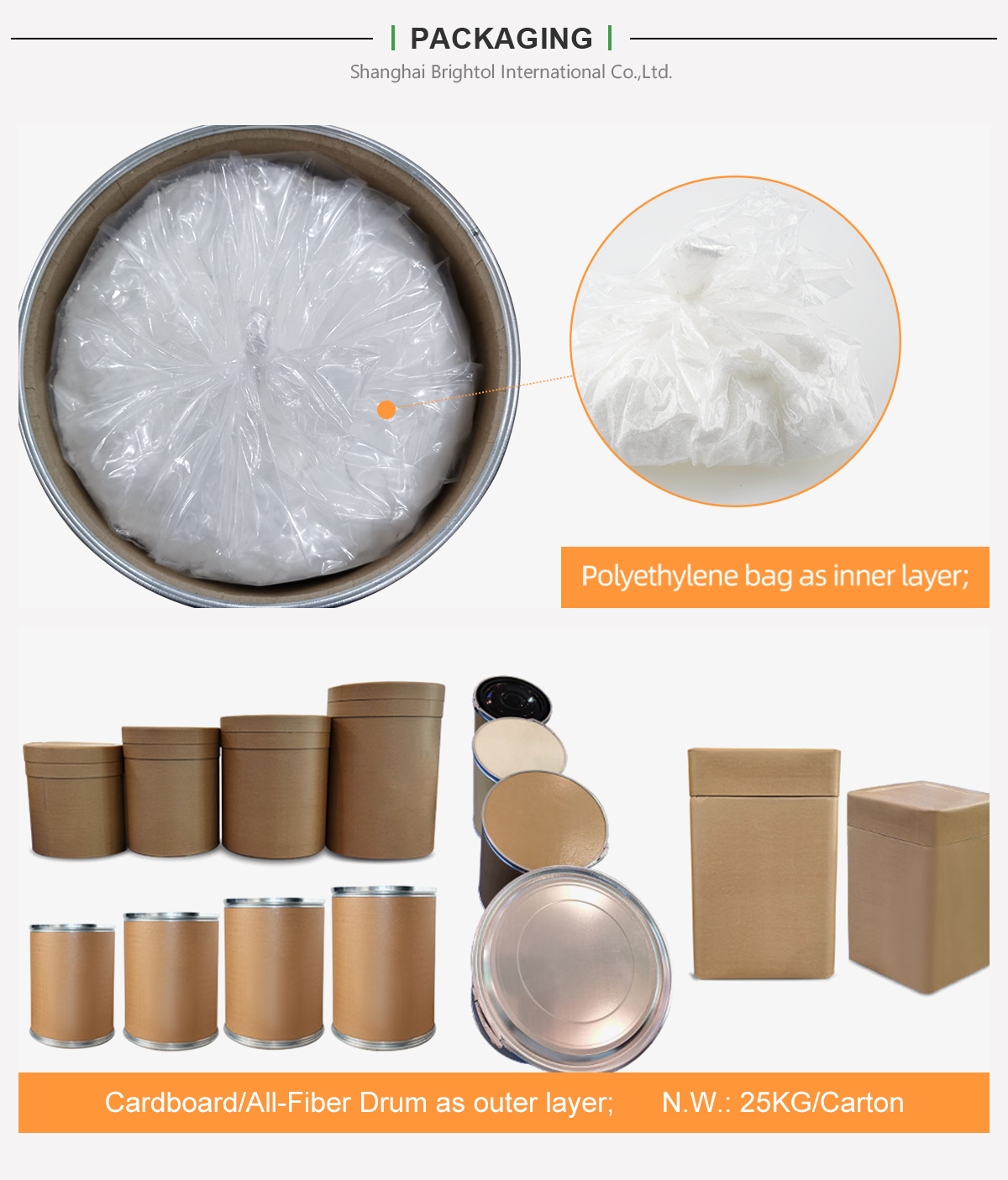

Description:
Beeswax is a natural wax extracted from bees. When initially formed, the wax in the honeycomb is almost white, but with the addition of natural oil introduced from flowers, the honeycomb turns yellow. Beeswax is collected directly from the beehive of the beehive and can be found in different forms. Dissolution of its high melting point; When beeswax exists in the form of particles / pearls, its easy processing performance is enhanced.
Beeswax is used to make exquisite candles, protect skin and provide protective coating for exquisite cheese. Including cosmetic and pharmaceutical uses.


Description:
Beeswax is a natural wax extracted from bees. When initially formed, the wax in the honeycomb is almost white, but with the addition of natural oil introduced from flowers, the honeycomb turns yellow. Beeswax is collected directly from the beehive of the beehive and can be found in different forms. Dissolution of its high melting point; When beeswax exists in the form of particles / pearls, its easy processing performance is enhanced.
Beeswax is used to make exquisite candles, protect skin and provide protective coating for exquisite cheese. Including cosmetic and pharmaceutical uses.
Benefit:
Beeswax has natural uses in medicine, cosmetics, food and even art.
Beeswax candles naturally have the smell of honey. This is ideal for people who have asthma, allergies or are sensitive to smell. Pure beeswax candles hardly emit smoke and wax droplets when burning. Research shows that burning beeswax candles can actually purify the air by releasing negative ions and remove impurities in the air we breathe.
Beeswax itself can lock in moisture, cultivate cells and protect skin. Beeswax has an amazing ability to work with a variety of ingredients and can be used to benefit and beautify the whole body. It has antibacterial properties and vitamin A, which helps natural healing and cell development without clogging pores. Beeswax has water repellent properties and can maintain sun protection.
Application:
Beeswax is used in medicine, cosmetics, food and even art.
Note:
For those who are allergic to bee products, we recommend consulting your health care professional before eating bee products.








